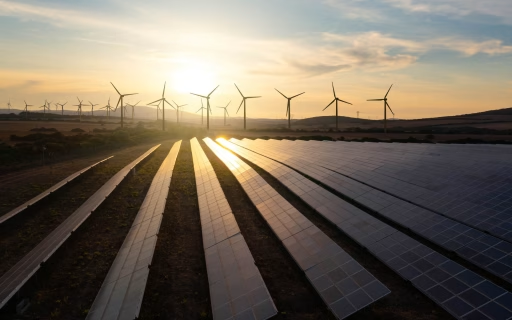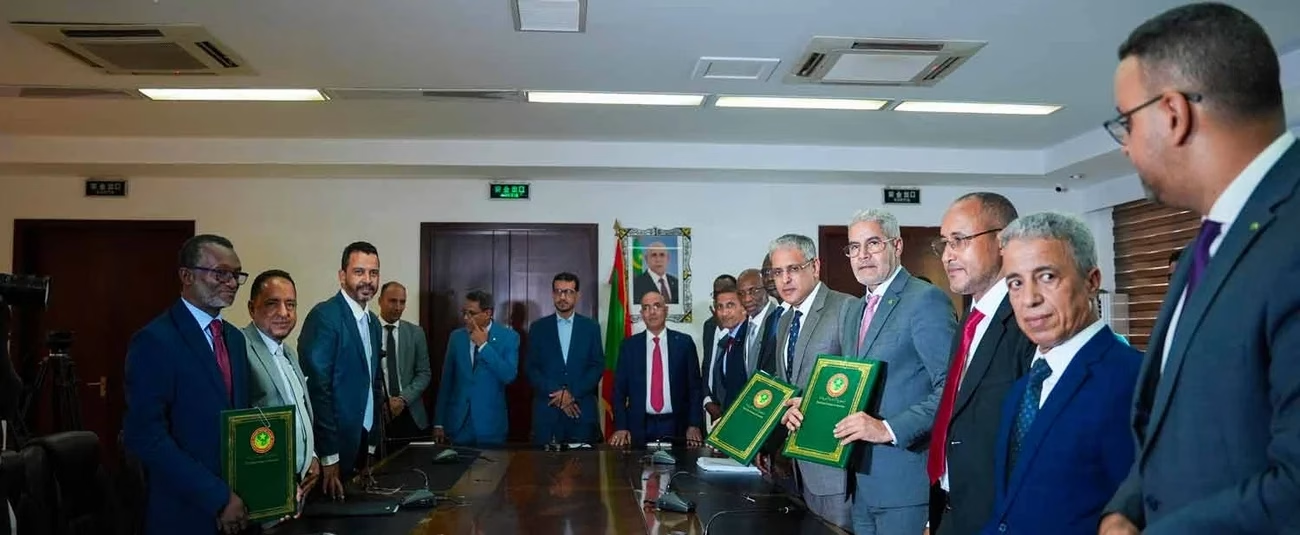Mauritania has just inked its first independent power producer contract which is a $300 million agreement that was signed with Iwa Green Energy that will foresee the development of the 60-megawatt Mauritania Hybrid Solar-Wind Plant.
Furthermore, the renewable energy project marks a milestone in Mauritania. The project seeks to drive and expand electricity generation through private financing. Also, it seeks to accelerate Mauritania’s transition to renewables.
Mauritania Hybrid Solar-Wind Plant Factsheet
Name: Iwa Green Energy Hybrid Renewable Power Plant
Location: near Nouakchott and Boulenouar
Developer/Operator: Iwa Green Energy
Cost: approximately $300 million
Total installed capacity: 220MW of wind and solar
- Solar PV capacity: 160MW
- Wind capacity: 60MW
Target commissioning: September 2026
Timeline
The facility will come onstream in September 2026. Additionally, it will boost Mauritania’s installed capacity of approximately 450 megawatts.

“Undertaking this project with private actors showcases their confidence in the Mauritanian government’s commitment to diversifying the production base and providing sustainable energy sources to serve the economy,” stated the Economy and Finance Minister Sid’Ahmed Ould Bouh at the signing ceremony in Mauritania’s capital, Nouakchott.
Current State of Mauritania’s Power Distribution and Connectivity
Mauritania has less than 10 percent of rural households connected to electricity. Also, the country relies heavily on imported fuels despite its vast renewable energy potential. Therefore, in order to increase electricity connectivity, the government has set ambitious goals under President Mohamed Ould Cheikh El Ghazouani’s energy transition plan. The government is targeting universal electricity access and 70 percent renewable generation by the year 2030.
The project stands as one of the first to be developed under the Desert to Power initiative’s Independent Power Producer Joint Protocol. This is a regional framework that is supported by the African Development Bank to attract private capital through standardised investment terms across 11 Sahel countries.
Benefits of Adopting a Fully Private Financing Model
According to Mauritania’s Energy Minister Mohamed Ould Khaled, the fully private financing model will allow the country to expand supply without adding to public debt.
Daniel Schroth who is the Director of Renewable Energy and Energy Efficiency at the African Development Bank commended Mauritania for taking this important step in applying the Desert to Power Joint Protocol. Also, he illustrated the project’s relevance as a tool for accelerating the implementation of IPP projects in the Sahel.
Significance of the Project
“Furthermore, this project is important in that it will contribute to the goals of the Desert to Power Initiative and Mauritania’s Mission 300 Energy Compact,” Schroth stated.
Lastly, the renewable energy project is part of a continent-wide transition in which African governments are increasingly turning to independent power producers to mobilise investment and scale renewable projects while cutting pressure on public finances. Also, it is a clear indication that African countries in the region (West Africa) are tapping into their renewable energy resources to meet power demands for their people. A good example is Ghana, that commissioned the Black Volta Solar Project which is West Africa’s largest floating solar project to boost power supply in the country.

Leave a Reply